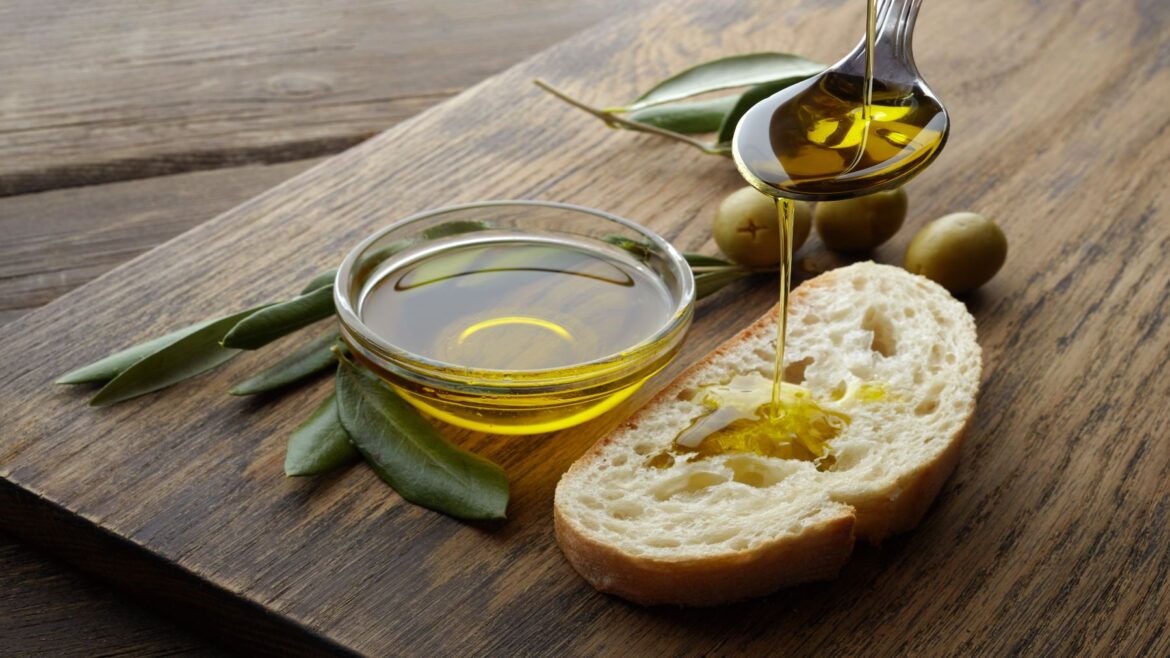A balanced diet is key to keeping our bodies as healthy as possible, and avoiding certain foods is essential. Mayonnaise is one of those ingredients present in virtually every American kitchen and is precisely one of the dressings least recommended by experts, who are more in favor of using olive oil. Researchers at the Harvard T.H. Chan School of Public Health found that people who consumed more than 7 grams of olive oil daily had a 28% lower risk of dementia-related death compared to those who rarely or never consumed it.
Scientific evidence supports that extra virgin olive oil helps reduce blood pressure in hypertensive patients
“Substituting olive oil intake for margarine and mayonnaise was associated with a lower risk of dementia mortality and may be a potential strategy to improve dementia-free longevity,” the researchers wrote in the study findings. Olive oil is also known as “liquid gold” for its many health benefits. Scientific evidence supports that extra virgin olive oil (EVOO) helps reduce blood pressure in hypertensive patients. Its phenolic compound content is what makes the difference compared to refined olive oil. That’s why many doctors recommend dressing salads with olive oil, for example.
And experts continue to affirm the benefits of consuming olive oil. “It makes sense that consuming olive oil frequently — as opposed to those highly oxidized, processed seed oils that we find all over grocery stores, would mitigate the damage to the neurons caused by oxidative stress,” says Tanya Freirich, a registered dietitian nutritionist in Charlotte, North Carolina.
“A higher omega-3 intake is known to reduce dementia and cognitive decline”
Additionally, EVOO may help lower LDL-C, commonly known as “bad” cholesterol, and increase HDL-C, known as “good” cholesterol, when baseline levels exceed 120 mg/dL. “Olive oil is a great source of omega-3 fatty acids, a nutritious fat that many people don’t consume enough of,” says Tanya Freirich. Studies indicate that although a diet including vegetable seed oil may lower LDL cholesterol levels more than extra virgin olive oil, a diet with daily EVOO produces a healthier type of LDL, since the particles are larger and less likely to oxidize.
And as Freirich says: “A higher omega-3 intake is known to reduce dementia and cognitive decline. It’s great to see the association between consuming olive oil, a great source of omega-3s, and a reduced risk of dementia.” Speaking specifically of concrete data, for a food to be considered a source of omega-3 polyunsaturated fatty acids, it must provide at least 80 grams per 100 grams of product.
The study analyzed population health data for more than 92,000 adults over a 28-year period
In any case, and in relation to these results, experts from the Alzheimer’s Association noted that the study had “significant limitations.” Especially because of the type of people who were chosen to do the study. “This study looked at people’s health records, death records, diet, and food frequency questionnaires to try to identify possible connections between specific food intake and risk of dementia-related death,” noted Rebecca M. Edelmayer, PhD, senior director of scientific engagement at the Alzheimer’s Association. The study analyzed population health data for more than 92,000 adults over a 28-year period. The participants average age was 56 and none of them had heart disease or cancer.
Therefore, based on this data, experts say they limit the study. “It is not an intervention study where some people ate olive oil and some didn’t, which is the ‘gold standard’ for the way a treatment clinical trial is conducted. That means this study can show an association or connection between two things, but can’t prove cause and effect,” Rebecca M. Edelmayer, said.
In conclusion, the important thing is to maintain a balanced diet dominated by natural products, eliminate excess fats and sugars, and maintain an active lifestyle that includes physical exercise, whenever possible.


Dining and Cooking